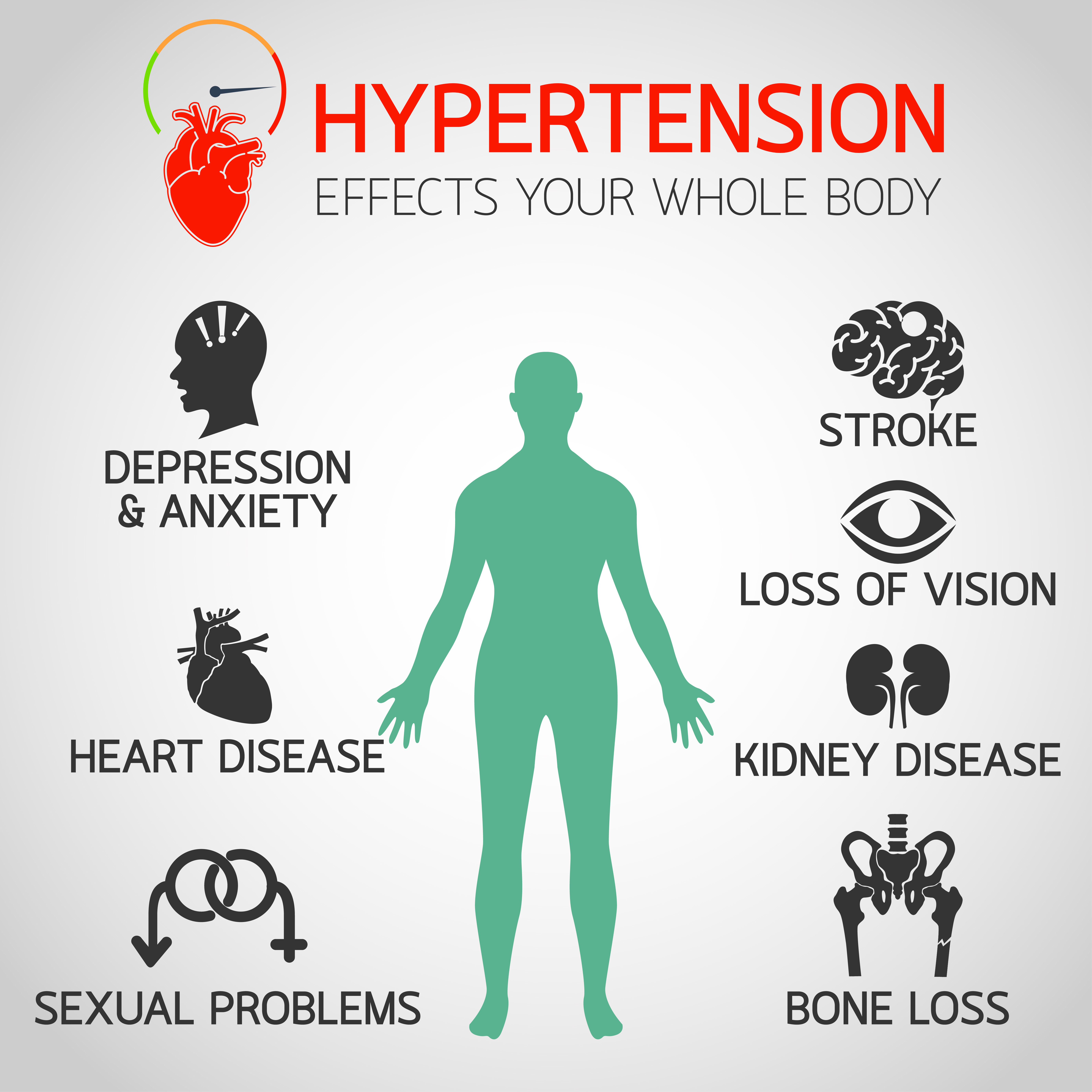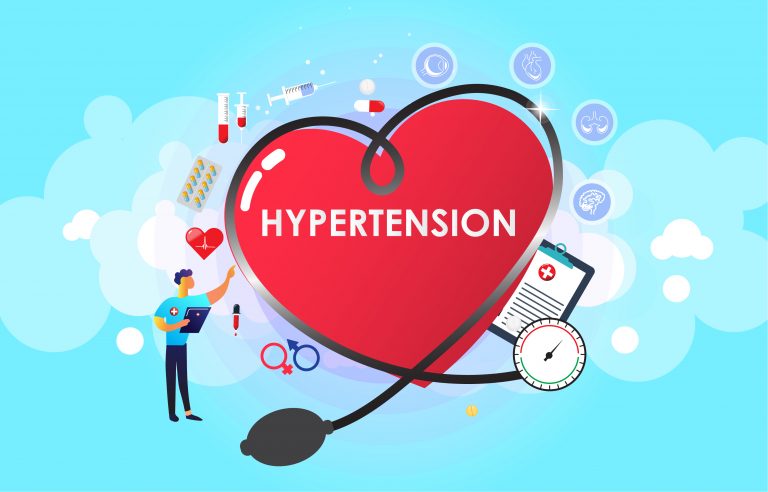High blood pressure, also known as hypertension, isn’t a disease in and of itself, however it is one of the primary risk factors for heart disease and stroke, two of the leading causes of death worldwide. An estimated 26% of the world’s population has hypertension, around 920 million people, and this is expected to increase to 29% by 2025.
What actually is blood pressure?
It is the measure of force exerted against the artery walls as your heart pumps blood around the body. We all have blood pressure and we all need it; without it blood wouldn’t be able to flow around our body. The problem arises when the pressure becomes too high. Over time, having high blood pressure

can cause blood vessel damage and increase your risk of serious health problems including vascular dementia, kidney disease, heart disease and mobility problems.
What are the symptoms?
High blood pressure rarely has any symptoms – it’s often referred to as a silent killer - so it’s important to have it monitored to keep a check on it as it can go unnoticed for years. One in three adults in the UK have high blood pressure and, according to the British Heart Foundation, around seven million people have it without realising it.
What are the causes?
In a majority of cases, the cause is unknown, but certain factors may increase the risk. These include age, family history, gender and race. Admittedly, all of these are all out your control, but there are factors you have more control over, including smoking, lack of exercise, being overweight, stress and excessive alcohol intake.
How to keep blood pressure in check
Evidence has shown that lifestyle interventions which include dietary modifications have proven to be highly effective in decreasing blood pressure, with randomised controlled clinical studies demonstrating a powerful additive effect of a combination of lifestyle therapies.
Reducing salt intake is one of the simplest ways to reduce your blood pressure. Diets high in salt can disrupt the natural sodium balance in the body, causing fluid retention and increasing the pressure exerted by the blood against blood vessel walls. You might be thinking, how much difference can a little salt make? Well, it has been estimated that reducing salt intake from 10g to 6g per day can lower blood pressure, leading to a reduction in deaths from strokes and coronary heart disease, potentially preventing approximately 2.6 million stroke and heart attack deaths each year worldwide.
The DASH diet (Dietary Approaches to Stop Hypertension) was developed to incorporate healthy dietary recommendations for blood pressure and it is low in salt, saturated fat, sugar and red meat.
If you aren’t interested in following a diet, then here are some simple dietary recommendations you can do to help maintain a healthy blood pressure:
- Reduce salt and foods hidden with salt. Keep an eye on food labels as certain food products including canned products can be loaded with sodium for preservation purposes.
- Pile your plate high with green leafy vegetables – kale, lettuce, rocket, chard, spinach. They are exceptionally rich in nitrates, compounds derived from nitrogen, shown to help widen arteries and maintain elasticity.
- Go nuts for nuts. Nuts have been associated with blood pressure lowering properties. Pistachios have shown to be especially beneficial in lowering systolic and diastolic blood pressure. Nuts are also rich in potassium, calcium and magnesium; all three of which have shown to be beneficial in reducing and managing blood pressure.
- Reduce coffee as caffeine can cause a spike in blood pressure.
- Dark chocolate (in moderation) has shown to help lower blood pressure. Compounds in cocoa and dark chocolate have shown to widen arteries by boosting production of nitric oxide, a chemical made by cells that line artery walls and can help arteries relax and widen, allowing for blood to flow easily.
- Studies show that fish oils play a significant role in reducing blood pressure so try to aim to eat oily fish like salmon, mackerel and sardines a few times a week.
It’s important to remember that some patients may require medication for high blood pressure and others may be able to use diet and exercise to control it with regular supervision from a qualified health care provider. Speak to your GP for an assessment if you have high blood pressure.






